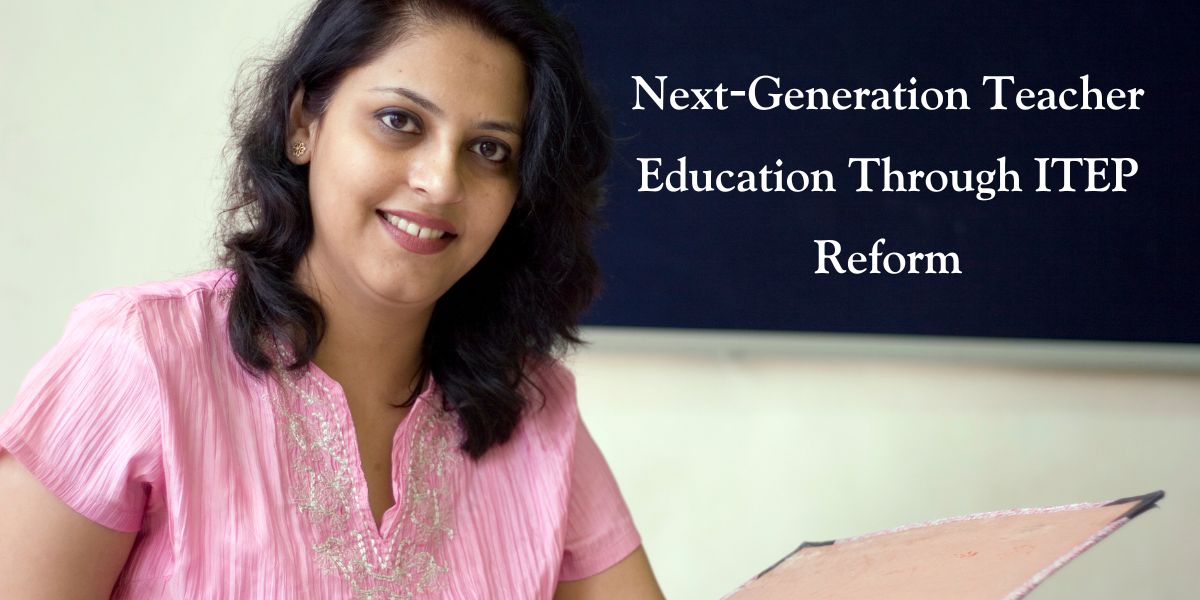New Delhi, July 2025 — In a landmark shift under the National Education Policy (NEP) 2020, India is scaling up the Integrated Teacher Education Programme (ITEP)—a comprehensive four‑year dual‑major degree designed to produce future-ready educators grounded in both subject expertise and pedagogy.
🚀 What is ITEP?
The Integrated Teacher Education Programme combines a Bachelor’s degree (BA, BSc, or BCom) with a BEd in a cohesive structure over four years. Instead of the traditional 3+2 pathway, students straight out of Class 12 can enroll in ITEP and consolidate subject mastery, pedagogical training, values, and research experience within one streamlined programme. The NEP mandates that, by 2030, the four-year ITEP will become the minimum qualification for schoolteachers.
This model saves one academic year and shapes educators with a holistic foundation in early childhood care and education (ECCE), foundational literacy and numeracy (FLN), inclusive education, and India’s cultural ethos.
📈 Rapid Scale-Up and Institutional Adoption
- Initial pilots of ITEP launched in 57 institutions during 2023–24.
- For 2025–26, the number of ITEP seats has increased by over 1,000 seats, spanning 64 institutions across disciplines like BA‑BEd, BSc‑BEd, and BCom‑BEd, with admission via the National Common Entrance Test (NCET).
- Allahabad University will offer its own four-year BA‑BEd programme beginning this academic session, admitting 50 students via NCET. The university streamlines access to advanced qualifications by enabling graduates to complete an MA or MEd with minimal additional time.
- Devi Ahilya Vishwavidyalaya (DAVV) in Indore is set to launch BSc‑BEd, BA‑BEd, and BCom‑BEd streams under ITEP from 2026–27, submitting applications to NCTE and targeting formal approval by December 2025.
- Similarly, states like Odisha have introduced ITEP across eight teacher training institutes, backed by financial support to upgrade institutional infrastructure.
🛠 Implementation Landscape & Broader Shift
- IITEP regulations have made interdisciplinary, multidisciplinary education mandatory in teacher training institutions, ensuring that traditional single-stream BEd programmes are phased out by 2026‑27.
- NCTE is set to reintroduce 1‑year BEd and MEd programmes from 2026, available to graduates with four-year degrees or postgraduates—while continuing two-year formats for others, and expanding ITEP specialization tracks such as art, yoga, Sanskrit, and physical education.
💬 Expert View & Context
Experts at educational forums point out that existing stand-alone BEd programmes have not kept pace with 21st-century pedagogical needs. At the India Academic Forum, educators noted that current teacher training lags behind school-level curricular transformations, undermining NEP goals.
The ITEP model aims to bridge this gap by embedding hands-on school experience, multidisciplinary learning, and continuous development from early teacher education onwards.
📌 What Candidates Should Know
| Aspect | Details |
|---|---|
| Entry Pathways | After Class 12 → ITEP (4-year), via NCET |
| Degree Outcome | Dual-major undergraduate degree + BEd qualification in one consolidated course |
| Roll-Out & Growth | Increasing seats & institutions; active regional adoption |
| Regulatory Timeline | ITEP mandatory by 2030; old integrated BEd phased out by 2026–27 |
| Alternate Routes | One-year BEd/MEd returns from 2026 for advanced-degree holders |
🧩 Bottom Line
The nationwide expansion of ITEP represents a major overhaul in teacher education, moving away from fragmented and outdated training models toward a future-ready, multidisciplinary, and efficient pathway. With growing adoption and regulatory support, ITEP is poised to become the bedrock of India’s education ecosystem—ensuring that teachers are academically sound, pedagogically prepared, and aligned with NEP‑2020 objectives.








